Salts: Explanation
Salts are ionic compounds composed of positively charged ions (cations) and negatively charged ions (anions). These ions can be formed through the reaction of an acid and a base, resulting in the neutralization reaction. The most common salt is sodium chloride (NaCl), which is commonly known as table salt.
Salts play important roles in biological systems, including maintaining the proper balance of ions within cells and tissues, as well as serving as essential nutrients for organisms.
Properties of Salts:
- Most salts are crystalline solids at room temperature.
- They have high melting and boiling points.
- Salts are often soluble in water, with some exceptions.
- They can conduct electricity when dissolved in water or in molten form.
Common Salts:
Some common salts include:
- Sodium chloride (NaCl)
- Potassium chloride (KCl)
- Calcium carbonate (CaCO3)
- Magnesium sulfate (MgSO4)
Salts: Study Guide
What are salts?
Salts are ionic compounds composed of positively charged ions (cations) and negatively charged ions (anions).
How are salts formed?
Salts are formed through the reaction of an acid and a base, resulting in a neutralization reaction. The positive ion from the base combines with the negative ion from the acid to form the salt.
What are the properties of salts?
Salts are crystalline solids at room temperature, have high melting and boiling points, are often soluble in water, and can conduct electricity when dissolved in water or in molten form.
Why are salts important in biological systems?
Salts are important for maintaining the proper balance of ions within cells and tissues, as well as serving as essential nutrients for organisms.
[Salts] Related Worksheets and Study Guides:
.◂Biology Worksheets and Study Guides High School. Plant structure and function
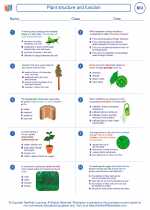
 Worksheet/Answer key
Worksheet/Answer key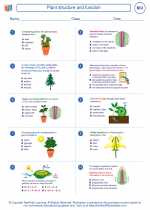
 Worksheet/Answer key
Worksheet/Answer key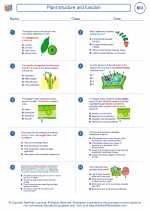
 Worksheet/Answer key
Worksheet/Answer key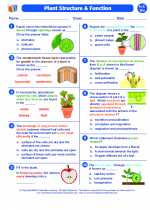
 Vocabulary/Answer key
Vocabulary/Answer key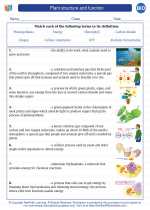
 Vocabulary/Answer key
Vocabulary/Answer key
